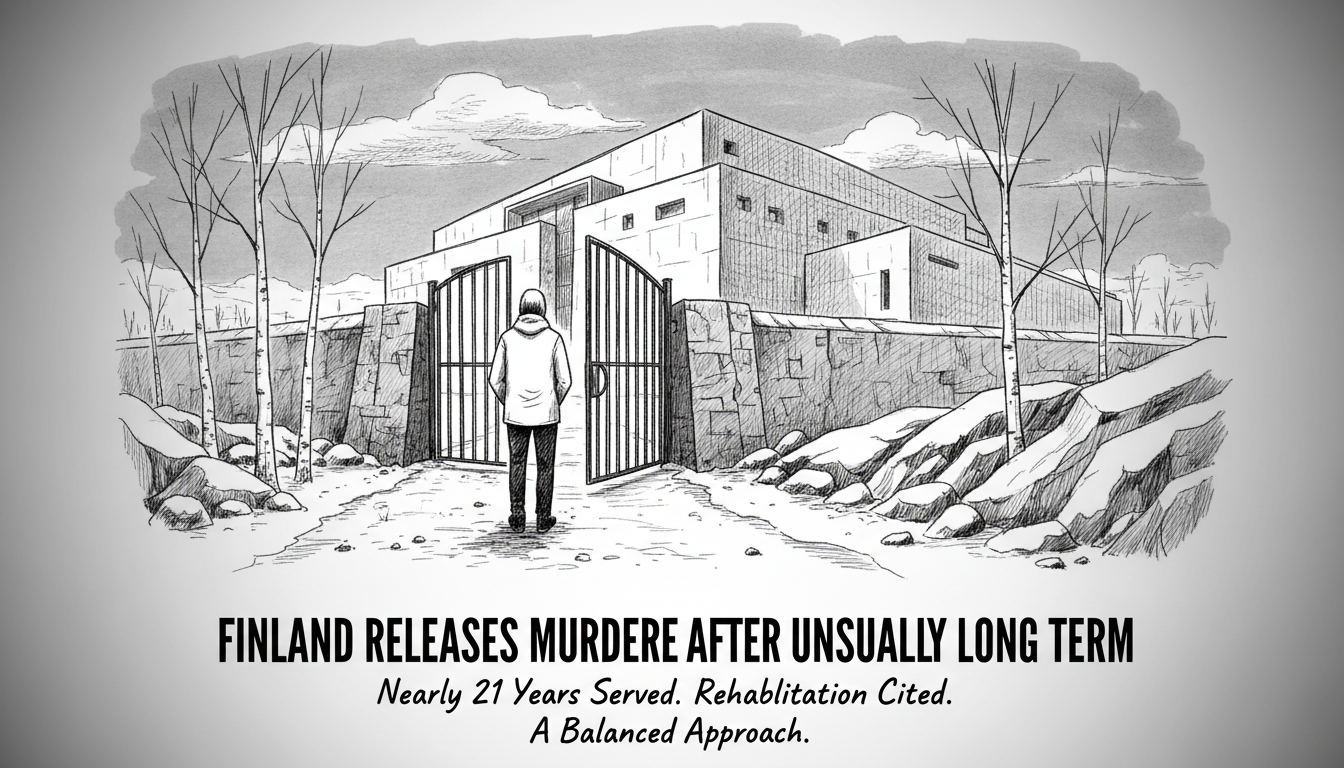Helsinki Court of Appeal has ordered the release of a convicted murderer who served over twenty years behind bars despite ongoing concerns about his potential danger to society. The man, born in 1974, received a life sentence for a 2004 homicide in Kemijärvi where he shot an unfamiliar victim twice in the back using a sawed-off shotgun before striking the victim's head with the weapon. His extensive criminal record includes convictions for aggravated deprivation of liberty, multiple assaults, robbery attempts, and property damage occurring around the same period as the murder. Legal documents reveal previous conditional prison sentences from 2002-2003 and additional offenses committed during incarceration.
The court acknowledged the prisoner's high recidivism risk in its assessment but determined his lengthy imprisonment and therapeutic progress justified conditional release. Finnish courts typically grant parole after approximately fifteen years for life sentences, making this nearly twenty-one year term exceptionally long by national standards. Prison authorities noted no violent incidents involving the man since 2017, with judges citing his cooperative attitude toward treatment and established therapeutic relationships as mitigating factors.
This decision highlights Finland's evolving approach to criminal rehabilitation within its Nordic legal framework. The Finnish justice system emphasizes proportionality in sentencing alongside public protection, with courts regularly reviewing life sentences after minimum terms expire. This case represents the complex balance between punishment duration and rehabilitation evidence that Scandinavian courts frequently navigate.
Release conditions include a three-year probation period without supervised parole, meaning the man transitions directly to freedom in mid-February. The court determined the murder's circumstances didn't warrant further detention beyond standard sentencing norms, despite initial opposition to his release in 2022 when judges deemed him dangerous. This reversal illustrates how behavioral changes during incarceration can alter judicial outcomes even in serious violent crime cases.
Nordic penal systems generally maintain lower incarceration rates than European averages while emphasizing rehabilitation programs. Finland's recidivism rates remain below continental averages, though this case tests public confidence in judicial risk assessment. The decision demonstrates how Scandinavian courts weigh institutional behavior documentation against statistical risk models when determining prisoner readiness for reintegration.

